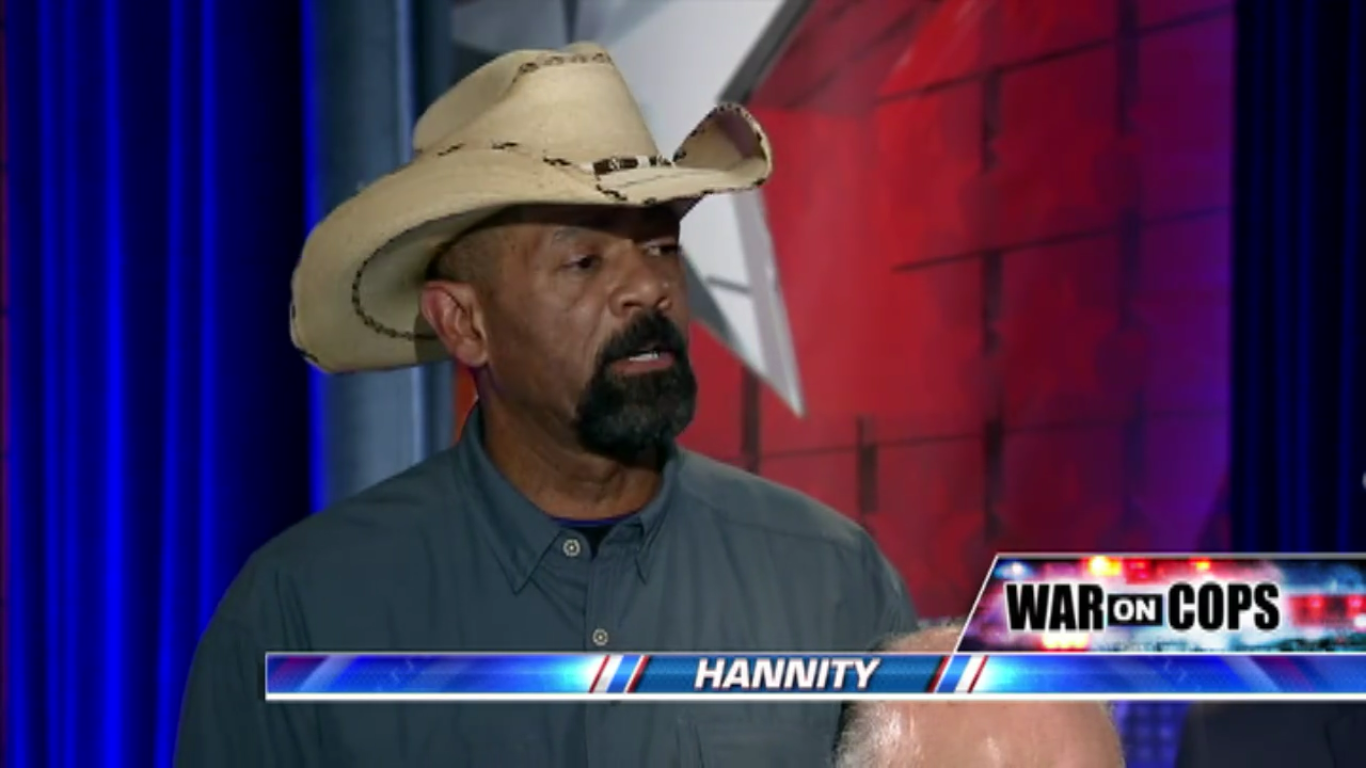Clarke Says Politicians Have Thrown Police Overboard
In an edition of Hannity which aired Wednesday, Sheriff David Clarke stated that President Obama is a “straight-up cop-hater.” One of the reasons Clarke used is that Obama opposes the “1033 program,” which deploys military surplus equipment to local police stations. Last year, Obama took steps to reform the program, which had led to weapons of war being placed in the hands of police.
While Clarke cited only to the provisions of this policy which supply body armor, he missed some major points. As Rand Paul said in 2014, through the use of 1033, “Washington has incentivized the militarization of local police precincts.” The program was created in 1990 as another way to fight the War on Drugs.
Some of the materials acquired are fairly innocent, like filing cabinets, computers, and desks. However, the portion receiving the most criticism is that which deploys to police stations items like assault weapons, armored vehicles, night-vision goggles and bulletproof vests.
Estimates suggest that more than $5 billion worth of equipment has been distributed through the Defense Logistics Agency since the program began. Additionally, following September 11, 2001, law enforcement has also received grants from the Department of Homeland Security to purchase military gear.
The issue presented is that, as Victor Kappeler of Eastern Kentucky University states, “Militarization is not just equipment — it’s an ideology and a mindset.” Most Americans can agree that police should not drive military-grade vehicles and use assault rifles. However, even the body armor, which Clarke references, is problematic.
By dressing police in military fatigues and training them to be warriors, the consequences are predictable. Rather than seeing citizens as peers needing protection, police inevitably view them as enemies. Rather than following a decree to “protect and serve,” police soon see themselves in a war-zone situation.
Issues like these are what have so transformed police in the modern era. Long gone are the friendly neighborhood cops who would “walk the beat” and know every family personally. Their baby blue tops and dark blue slacks have been replaced by black SWAT uniforms. The smiling faces which once existed are now concealed by dark masks.
Rather than prioritizing face-to-face interaction, police are demanded to produce results. The human beings they are tasked with protecting are now no more than numbers and statistics. Given their rigorous training, they are prepared for the worst-case scenario.
This is not at all to blame the officers themselves. They are merely responding to the incentives and protocols created by a flawed system. Just as these police were once grilled on the nuance of developing relationships and reflecting accountability, the priorities placed in front of them have now been changed.
Because of this shift in tone, not only do more hostile interactions take place, but fewer citizens have personal relationships to rebuke accusations of impropriety. While those in more spread-out rural areas maintain the positive relationships which existed in a “bygone era” due to lesser crime and more personal interaction, urban-dwellers see police in a very different light.
The latter group sees the law as an entity “out to get” them, with little interest toward justice. For this reason, any media portrayal of alleged police misconduct does more to exacerbate a notion which seems all too familiar.
If Sheriff Clarke and other conservatives wish to engage in a meaningful dialogue on police brutality and militarization, they need to understand that personal relationships matter. Further, they need to understand that attempts to restore police to their assigned roles within communities is not an indication of “cop-hating.”
For police to garner more respect and restore integrity for their profession, they must look not to Washington, D.C. for solutions, but rather, to their local neighborhoods.
Watch Clarke’s full statements below:




